




03 - Editorial
04 - Pastors: the key to a church’s missionary vision
05 - How our small church grew a big heart for mission
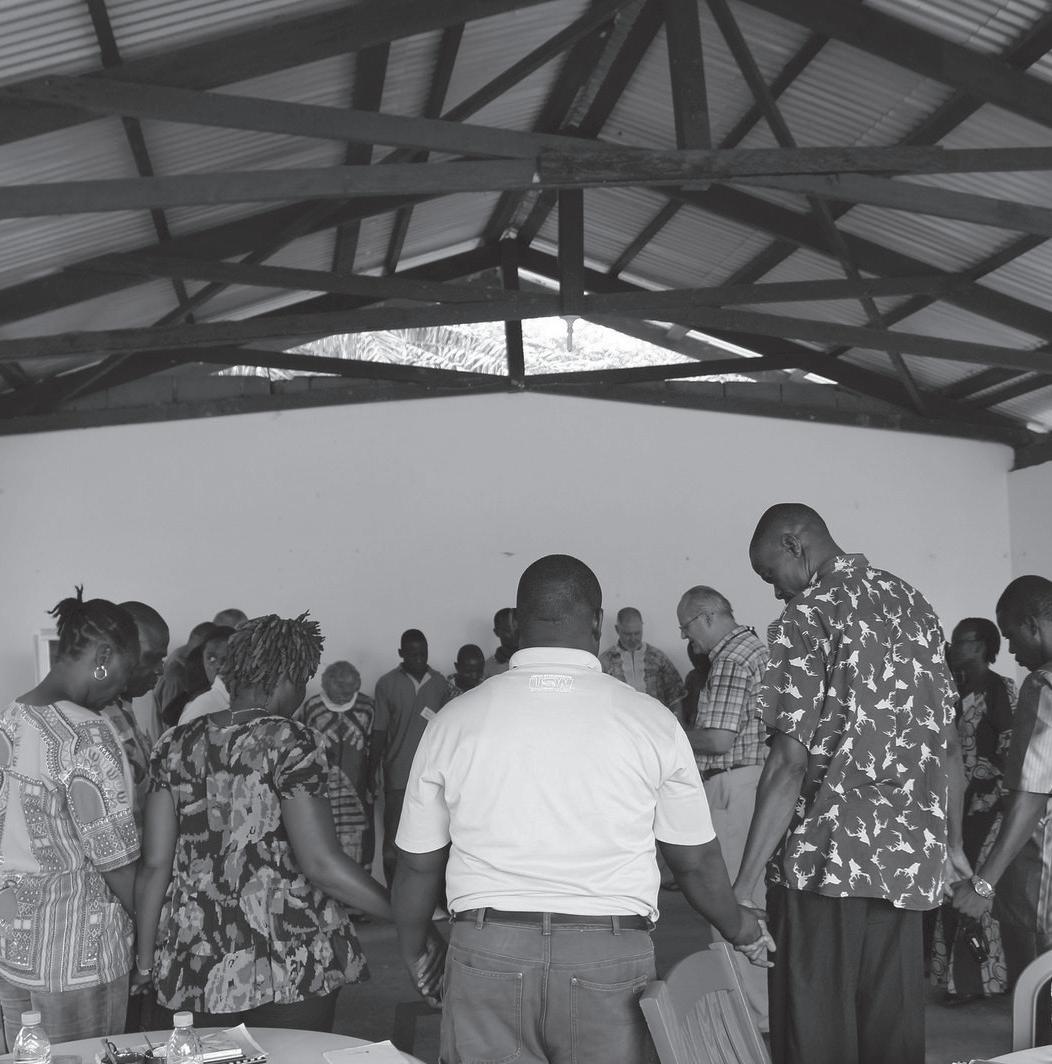
06 - Perspective
07 - GO! News of Africa’s mobilising Church
08 - Why we GO - People Groups
Cover : Rev. Moses Paye, pastor of the Evangelical Christian Fellowship in Monrovia, Liberia, with new missionary Dexter Brown. Story on page 5. (Photo by Warwick Walker)
The views expressed in the various features in this magazine are not necessarily those of the publisher.

Practical suggestions to help you introduce your congregation to world mission. How to encourage whole-hearted commitment and involvement.
© 2016 AFRIGO AFRIGO is a quarterly publication aimed at raising awareness, mobilising, training and inspiring churches and individuals in Africa towards global mission.
Editor: Suzanne Green
Design: Shelbey Hunt Stock photos are occasionally used. Pseudonyms are used when there are security concerns.
AFRIGO: info@afrigo.org
AFRITWENDE: afritwende@afrigo.org
ALLONS-Y ! : info@afrigo.org
AFRÍDE: afride@afrigo.org
SIM East Africa:
Tel: +251 911 206 530 east-africa.office@sim.org
SIM West Africa:
Tel: +233 30 222 5225 wamo.personnel@sim.org
SIM Southern Africa:
Tel: +27 21 715 3200 za.enquiries@sim.org
AIM International amc.io@aimint.org www.aimint.org/africanmobilization/www.afrigo.org
We’re stepping out of our immediate environment to share the gospel. Now that’s something to celebrate!
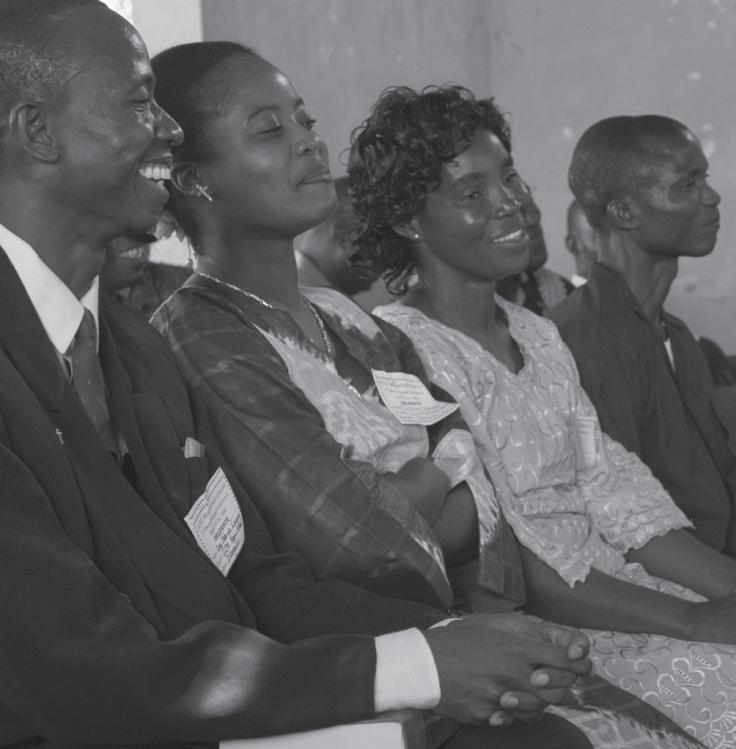
A church won’t be effective until it shares God’s heartbeat for mission.
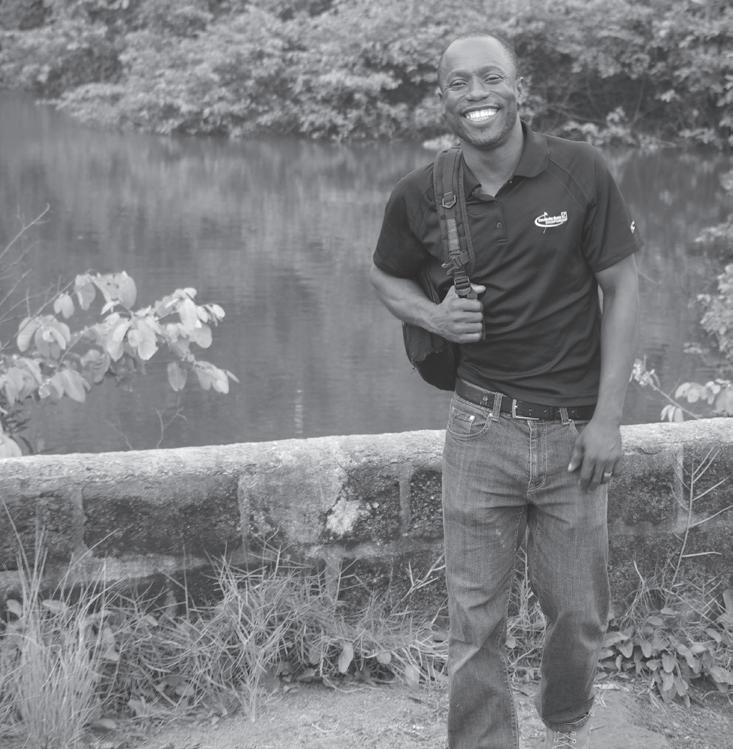
Serving Ebola survivors is an opportunity for the Church to be like Jesus, to touch the untouchable and accept those who have been rejected.
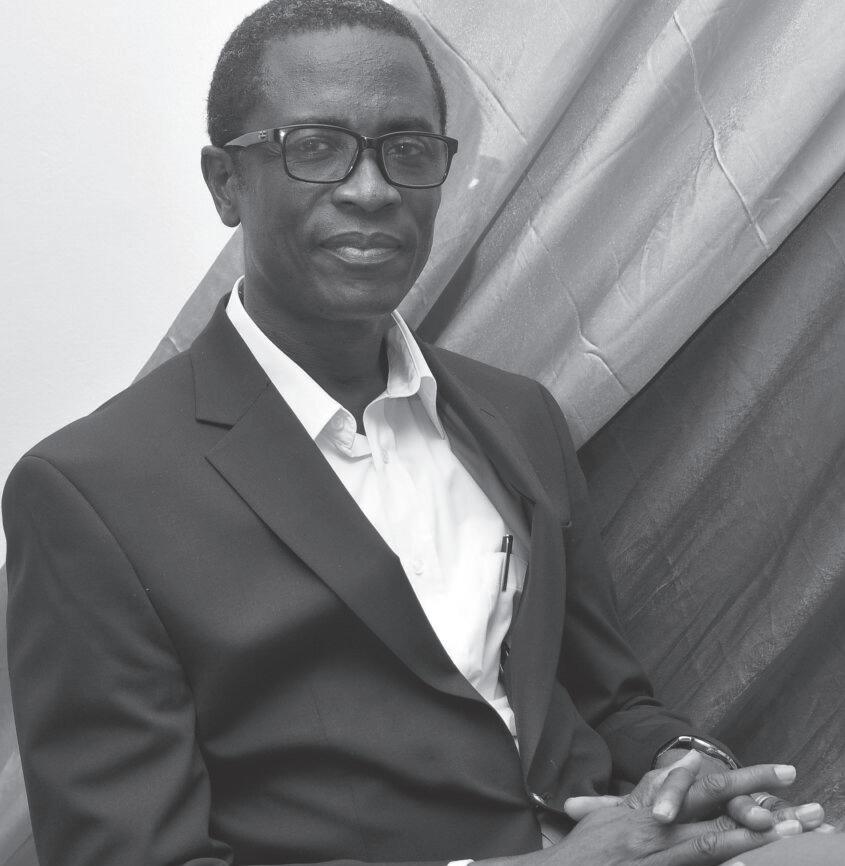
Acts 13 describes a church far away in Syria that became the first to officially commission cross-cultural foreign missionaries in the New Testament Church.
Now there were at Antioch, in the church that was there, prophets and teachers: Barnabas, and Simeon who was called Niger, and Lucius of Cyrene, and Manaen who had been brought up with Herod the tetrarch, and Saul. While they were ministering to the Lord and fasting, the Holy Spirit said, “Set apart for Me Barnabas and Saul for the work to which I have called them.” Then, when they had fasted and prayed and laid their hands on them, they sent them away. (Acts 13: 1-3, NASB).
It appears that some of the people recorded in this account would be the equivalent of today’s pastors. They were together; they were ministering to the Lord and fasting. We are not told the specific issues upon which they were fasting, but certainly their hearts were one with the Lord’s, for indeed the Lord spoke. The Lord asked these leaders of a diverse Antioch church to set apart Barnabas and Paul for the work to which He had called them. After that “setting apart,” the rest is history. Antioch – a church with listening shepherds, pastors and leaders – has had greater impact on the world than perhaps the Church in Jerusalem itself.
The point is this: when the Great Commission was given and Christ commanded his followers to be his witnesses to the ends of the earth, no one could have predicted that a church planted among Gentiles far away in Syria would so profoundly influence the world. If you ask me what made
the difference, I would say, “listening leaders.”
Indeed, while Peter was still in Jerusalem defending his presence in the home of Cornelius, God was already raising leaders in Antioch by his Spirit. These leaders would listen for his voice as they ministered to Him and worshipped. They were prophets and teachers, and were sensitive to the Lord. Their hearts were where the Lord’s heart was, and God found them ready to carry out his commission.
He gave them the privilege of commissioning one of the greatest Apostles who ever lived. That commission resulted in the writing of almost twothirds of the New Testament. Paul, along with his companions, was one of the greatest influences in the Canonized New Testament.
How was that possible? How did a church, founded by persecuted migrants and refugees, receive such a place of honour and importance in the scheme of God’s redemptive work around the world? They had leaders or shepherds who listened to God. They fasted, they ministered and they listened.
Pastors are central to what God is able to do with his own Church. No wonder Paul warned the Ephesian elders by charging them to take heed
to themselves and to the flock over which the Holy Spirit had made them overseers. These shepherds could grow or destroy the flock. They could encourage God’s people into their highest calling or prevent them from hearing it. They occupy an amazing place in the lives of God’s Church and his people. How many more Antioch churches does God have out there, with shepherds who will listen for his voice?
This call is still going out today, and listening shepherds still hear it. The reasons God asked that Barnabas and Paul be set apart remain the same. Paul summarises them in Acts 26:18: “to open their eyes so that they may turn from darkness to light and from the dominion of Satan to God, that they may receive forgiveness of sins and an inheritance among those who have been sanctified by faith in Me.”
Many still live and die without ever hearing God’s good news. In many communities, cities and towns Christ is not known, or was once known but is no more. The God who called the church in Antioch is still calling today: “Set apart for me!”
Are the shepherds hearing? If you are, what are you willing to do about it?
Rev. Dr. Joshua Bogunjoko SIM International Director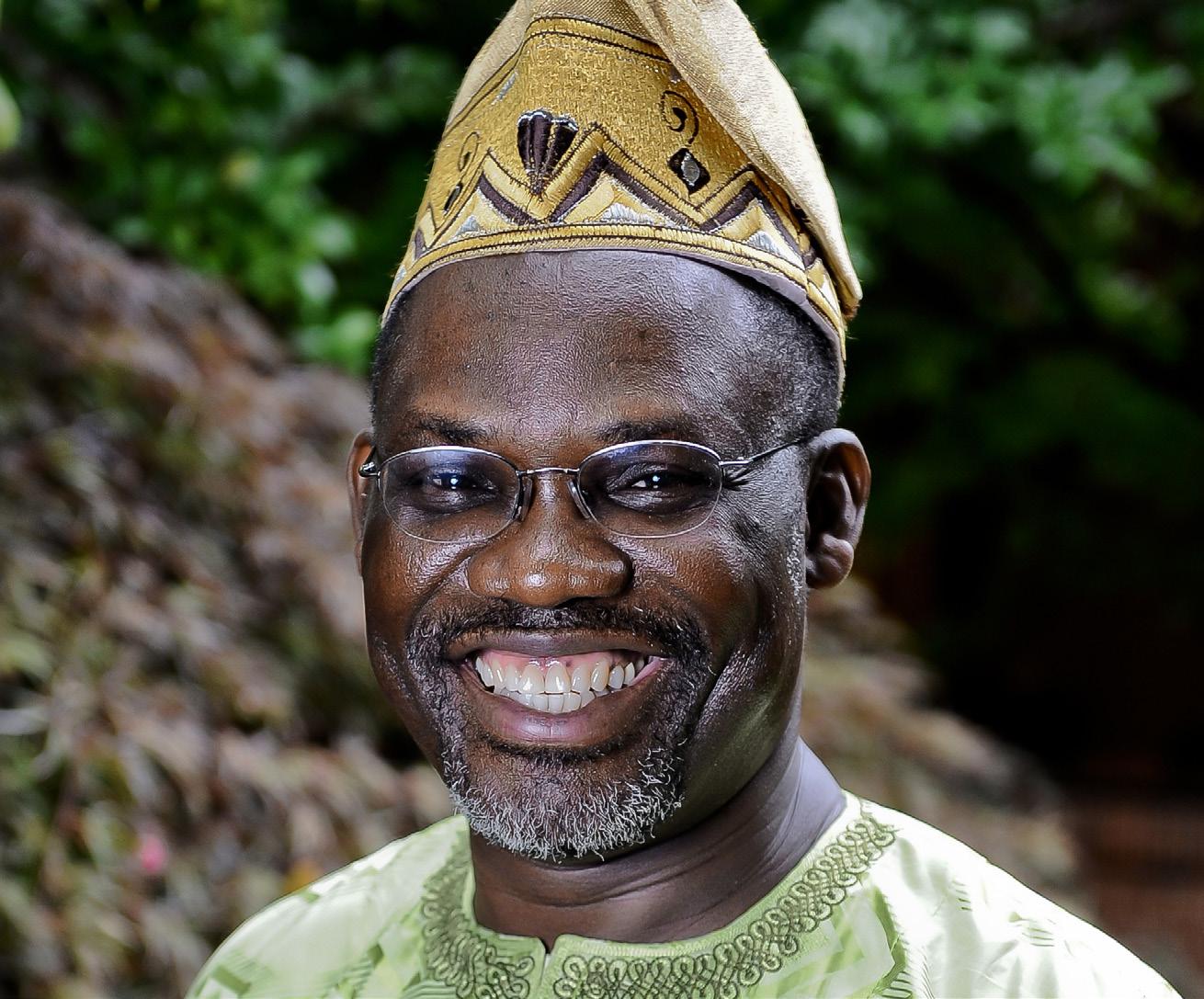
Host a missions conference. Invite missionaries or people who have participated in mission trips so they can share, train and challenge.
God has chosen pastors to direct his church. It is the pastor’s vision and example that will steer the church and its participation in mission. If you lead a church, your role is to help your congregation understand and accept its responsibility for mission, both locally and beyond. Everyone needs to know that we all have a part to play in God’s missionary plan.
You can encourage every member to take part in mission by going or by sending (through praying and giving). Consider giving a missionary message to God’s people at every opportunity.
Your church might have a missions committee or programme, but don’t form a committee to do what the whole church should be doing! This is a great start! But no matter where your church is currently, there are always more steps to take when it comes to cross-cultural mission. You may be able to help your members come to a place where the people can say, “We are a missions-minded church,” not just “We are a church with a missions programme.”
Serving in mission should not only be something discussed by six people in a church office. How much better if it is on the lips of every person in the congregation! Instead of a world mission focus one week per year in a big campaign or conference, why not follow up with missions information and challenges throughout the year?
Mission trips are not just for the youth group. A trip to visit a people group who are living and dying without Christ in your country or the country next door can open a person’s eyes and expand their vision. Give members of your church a chance to take part in a mission trip – it’s life changing!
Pastor, God is calling you to encourage the missionary vision in your church. Teach your members that they:
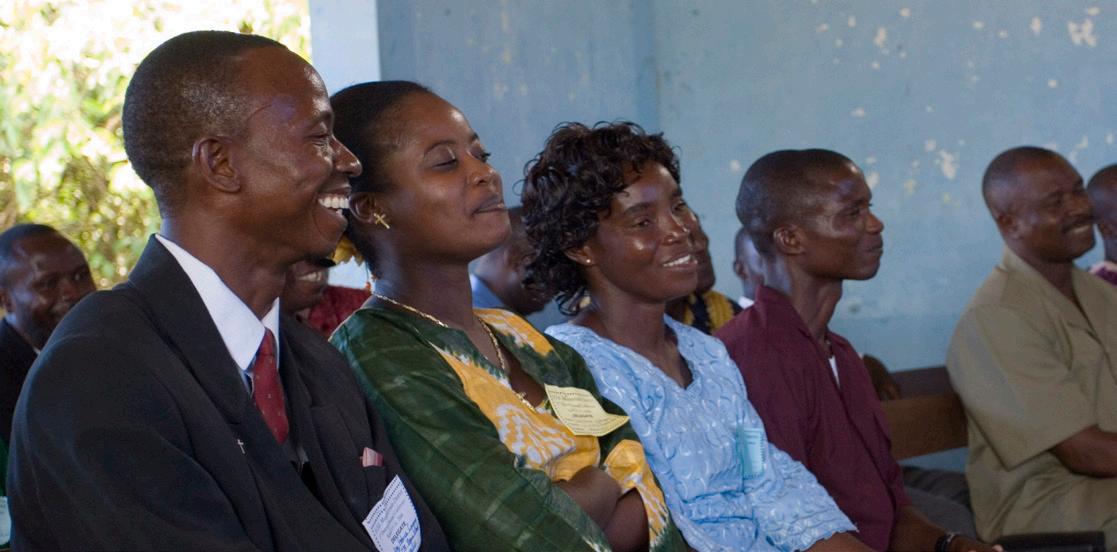
• are a necessary part of the (praying, giving and going) team.
• need to commit themselves financially and also keep their promises. Their offerings are valuable no matter how much they give.
• are privileged to pray for their missionary regularly; their prayers make a difference.
• should be involved in the neighbourhood, country and world.
• need to have short-term goals and long-term goals.
Plan a fundraising event. This motivates and raises aware ness, so the church can pray for and give to missions. Even before your church has missionaries, the congregation can start saving for missions. At the same time, people can be praying for God to raise up missionaries. Whether your church supports them partially or 100% will depend upon the circumstances, but those whom God has called should be able to count on support from their home church.
Adopt a missionary. Every Sunday school class, church group or ministry can do this. The goal is to keep in con tact with and meet some of the missionary’s needs. He or she will feel supported and loved, and the group will grow in their in commitment to mission.
Encourage giving. Everyone, starting with the children, can learn to give consistently and from the heart. Offer practical ideas about how to save or raise money.
Highlight mission in church services. At least a few min utes of every service should be dedicated to mission. Show the congregation that your church’s involvement in mission is important to you.
Inspire through missionaries’ stories. Make use of their testimonies and stories and recommend their biographies. Use visual aids when possible: flags, maps, pictures, Pow erPoint presentations and bulletins.
Create a missions wall. Post to the wall names and faces of missionaries the church supports. Put missionaries’ let ters there and highlight the important points mentioned.
Study the book of Acts. Preach on this book and organise an in-depth study. Help your congregation learn what it has to say about mission.
Start missions support groups. Start a prayer group for missions or a missions committee.
Excerpted and adapted from Let’s Go! Interactive Missionary Training, SIM International, April 2015 edition.
Photo by Joni BykerAs pastors we can, to a large extent, help to shape the direction of our churches. It is a major part of our responsibility to exert godly influence on the life and direction of the people under our care. That’s why we are called leaders.
Our church, the Evangelical Christian Fellowship (ECF), outside Monrovia, Liberia, had a sending off ceremony on 26 June 2016 for a missionary family who will be serving in rural Liberia. We are sending Dexter Brown to the southeastern region, where he will be engaged in evangelism and church planting. Based in the village of Saryah in River Cess, Dexter plans to extend his outreach to villages in Sinoe County and other remote places in the area. His wife, Cecelia, and their five children will join him some time next year.
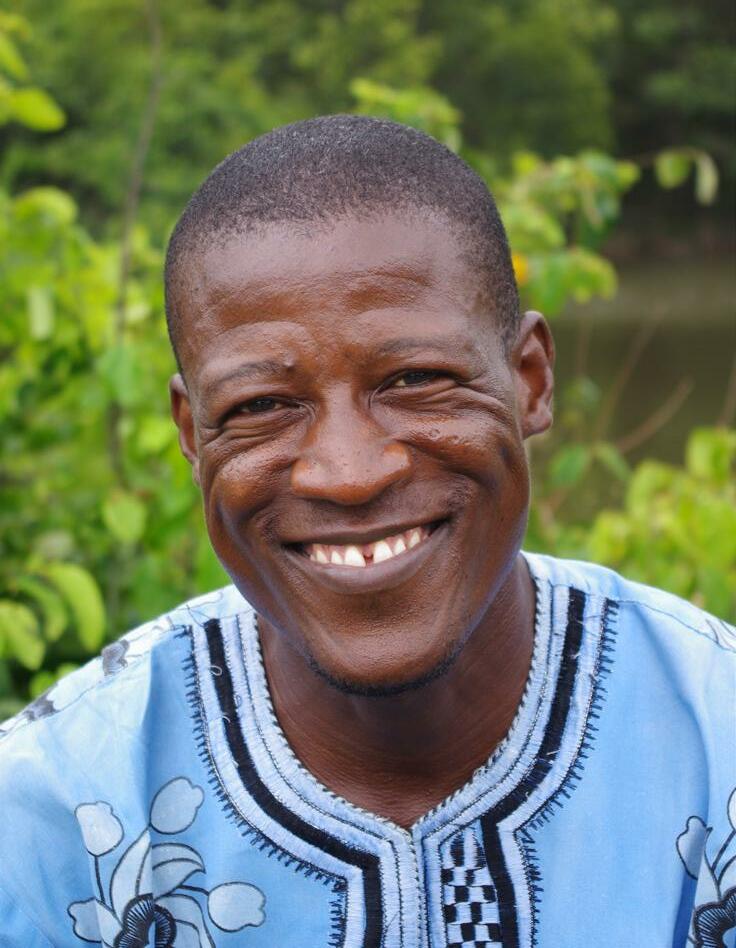
This is an exciting time for our church family, and we praise the Lord for the privilege and the leading of his Spirit to step out beyond the boundaries of our immediate church environment to share the gospel.
ECF has been assisting the Browns in raising financial support. But motivating our members to appreciate and fully participate in mission has meant taking some intentional and concrete steps.
It has been my prayer since the church was established that mission would be central to the motives and ministry of ECF. In our prayer meetings we have often asked the Lord to help us to be missions-minded. We see what is unfolding at the church as God’s answer.
Every year we devote the month of May to mission: it’s the focus of our preaching, teaching, worship songs and prayers. We highlight the mandate, priority, beauty and reward of mission, so that our members will be encouraged to get involved. We raise a special offering each week of the month, which
is usually sent to the mission board of the Evangelical Church of Liberia (ECOL) to support its ministry activities.
In 2009 I started a one-year Bible training programme to equip leaders and potential leaders for effective service in discipleship and mission. Nearly all of those trained are now faithfully serving in the church. After Dexter Brown successfully completed the 2010-2011 programme, he served as a deacon and an adult Sunday school teacher.
For several years before this my wife and I led weekend rural outreach trips. We usually encouraged church members to accompany us, so it was a vision trip for them. Some joined us in sharing Christ with the villagers. When they returned home, they told other church members about the excitement of the work, as well as the needs. This ministry resulted in the establishment of three churches in three villages.
Dexter often accompanied us on these trips, and I watched him grow in his passion for souls as he shared his faith in Christ. His decision to go to the mission field was no accident; the Lord had been preparing him.
Located just outside the capital city of Monrovia, ECF was established in
2001, when war was waging in Liberia. Today our membership is 165, and we have four Ebola survivors, including two orphans. Many church families, including the Browns, were placed under quarantine during the Ebola outbreak.
We are part of the ECOL, an association of more than 100 churches. In early 2015, when ECOL sounded the call to the churches to send a missionary to the southeastern region, we regularly asked God to touch someone. Three months later Dexter told me, “Pastor, I am of the conviction that the Lord wants me to go.”
Dexter had felt called to mission since 2012, when he completed his Bible training, but he wasn’t sure when or how to go. He and his family had been praying for God’s direction, so the call from ECOL was both a confirmation and an answer.

As pastor of ECF, I praise God as He continues to transform our church into a body of “goers” and “supporters”! It brings all of us tremendous joy to see our members step forward for missionary service.
It’s something every church should celebrate.
Photos by Warwick Walker
Working among an unreached people group is so important in developing a passion for mission in pastors and church leaders. Someone has said that we will not have a burden for the lost until we experience a “holy discontent”. And that only happens when we put ourselves in the place where we will feel that discontent –where our hearts will be broken for the lost, the least and the last.
My own launch into mission was serving among the Dangme people, who live in southern Ghana near the Volta River estuary. I entered full-time pastoral ministry in 1981, and my church sent me to serve the Dangme.
It was a tough, challenging ministry. When I first went I was not married: I was afraid to take a wife to that place. Voodoo had a strong hold on the people. If you spoke against their gods or idols they might attack you. But God was good and He protected us.
We planted seven churches among the Dangme, and this experience created a passion in me to be very missional in my pastoring. When we left, after ten years, it was so good to see that God’s presence was there.
We returned to the capital where we were involved in urban ministry for two years. My previous experience had taught me that no church will be effective until it has a missionary vision, so I was determined to see every pastor get the opportunity every year to experience mission. Short-term trips are vital, and they should involve church
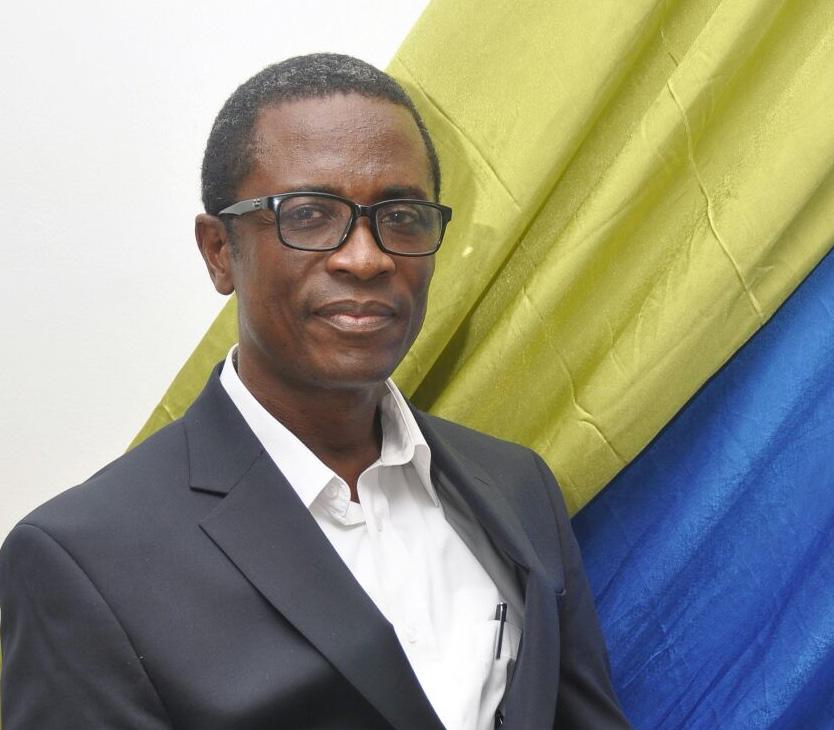
elders too. They return with a new light in their eyes, telling the church about their experience and challenging others to get involved.
In 1993 I joined Gospel Recordings, an organisation that uses audio cassettes, flipcharts and picture books to reach the unreached. It was at this time that I began working alongside SIM among various people groups in northern Ghana. Today I work with International Christian Ministries, training pastors and church leaders, inspiring them to involvement in mission, the ministry or training. I also serve as the Ghana and Africa Director of the Walk Through the Bible organisation. This means I have a great platform to pour out my heart for mission among pastors!
We must cast a vision for mission from the pulpit. After all, if you believe in something but don’t speak about it, there is a problem somewhere. A number of obstacles may raise their heads. These can include tradition (this is not the way we do things), mentality (we are not ready for this), denominational position (this isn’t church policy); and political barriers (this may not be safe!).
When churches do get switched on to mission, everything changes. Their prayer life is transformed and they begin to have a worldwide outlook, rather than just focusing on themselves. They see the needs around them, and their hearts are broken. And they become more free to release people
and finances for God’s work.
The Church in Africa has an internal strength. Some of our biggest congregations did not receive external support. So we can encourage others: a “homegrown” church is possible in any location. And because we are strong, we are able to channel that strength into sending and supporting mission.
Saying that, the West did send many missionaries so that we might hear the gospel. It’s time that we give back, reaching out to others who don’t know Jesus. Africa would not have heard the good news unless others paid a price. Let us be prepared to give up our comforts and also take risks for the sake of the gospel. We serve a missionary God and mission is God’s heartbeat (Genesis 3; Isaiah 6; John 3:16).
Reaching out to the lost will cost your time, your money … maybe even your life. It will cost everything. But if Jesus was prepared to risk, then we must follow his example. Pastors, I encourage you to take the lead in developing healthy churches that are passionate about world mission.
Rev. Philip Kofi Tutu is the Executive Director of International Christian Ministries, SIM Ghana Council Chairman and Associate Pastor of Assemblies of God Church, Madina in Accra, Ghana. In these roles he regularly addresses and teaches groups of pastors on the topics of evangelism and mission. Philip and his wife, Janet, have raised five children, now aged between 32 and 15.
The Distant Boat is a film that invites the African Church to embrace its unique opportunity to reach Africa’s unreached peoples, challenging it to become a major force for mission in the future.
It is the story of Max, a young urban Kenyan who has it all: a dream job, a best friend and a girl he hopes to marry. Then Max meets Yusef, a Muslim fisherman – he and his people have no church and no Christian witness. This encounter causes Max to wonder if God is calling him to serve as a missionary.
The 120-minute film was produced by On Field Media (a ministry of Africa Inland Mission), and a consortium of mission partners. It explores the obstacles that must be overcome if a church is to “make disciples of all nations,” emphasising that it is worth the cost.
The Distant Boat is available in English, Swahili, Portuguese and (soon) French. Go to www.distantboat.com for more information, or to learn how you can obtain the film and its study guide.
Regional missions-focused Pastors’ Book Set (PBS) conferences organised by SIM, in collaboration with the Evangelical Association of Malawi (EAM), between 2012 and 2013 have sparked enthusiasm among Malawian churches for cross-border outreach. The Malawi Mission Initiative (MMI), launched in 2013, is the Church’s practical response.
Rev. Paul Mawaya, MMI’s National Chairperson, says, “Please pray the united force of Christian denominations, the commitment of church leaders, the economic independence of the Church, the sustained grace of God, fervent prayer and the inclusion of mission in Malawi’s theological and pastoral training institutions will ensure the success of this new initiative.”
The MMI is a network of missions-minded churches, institutions and mission agencies that aims to facilitate the mobilisation, empowerment and support of cross-border mission work. The forum envisions Malawian churches sending and supporting missionaries in response to the Great Commission.
MMI has drafted its constitution in preparation for official registration with the government. From October 2014 to May 2015 the initiative ran the Monthly Missions Fundamentals Training Course, bringing together 120 participants from the three regions of Malawi in Blantyre.
In November 2015 MMI collaborated with SIM and EAM in organising a third PBS conference in Mzuzu in northern Malawi, and 350 people from all regions attended. Between February and April 2016 three regional PBS Missions Conference Follow-Up Workshops attracted the participation of about 100 missions-minded church leaders and laymen. They have formed regional Monthly Missionary Prayer Fellowships in Mzuzu (north), Lilongwe (central) and Blantyre (south).
We look at financial support for mission. What is the church’s responsibility in funding members who feel called by God to serve as missionaries? How can a church, regardless of its resources, support and send a missionary?
Do you have questions about the theme mentioned above or perhaps other missions-related topics? Let us hear from you! What topics would you like AfriGO to cover? We would love to have your input, so that we can make the magazine as relevant and comprehensive as possible. Please send your questions and ideas to info@afrigo.org so that we can serve you better.
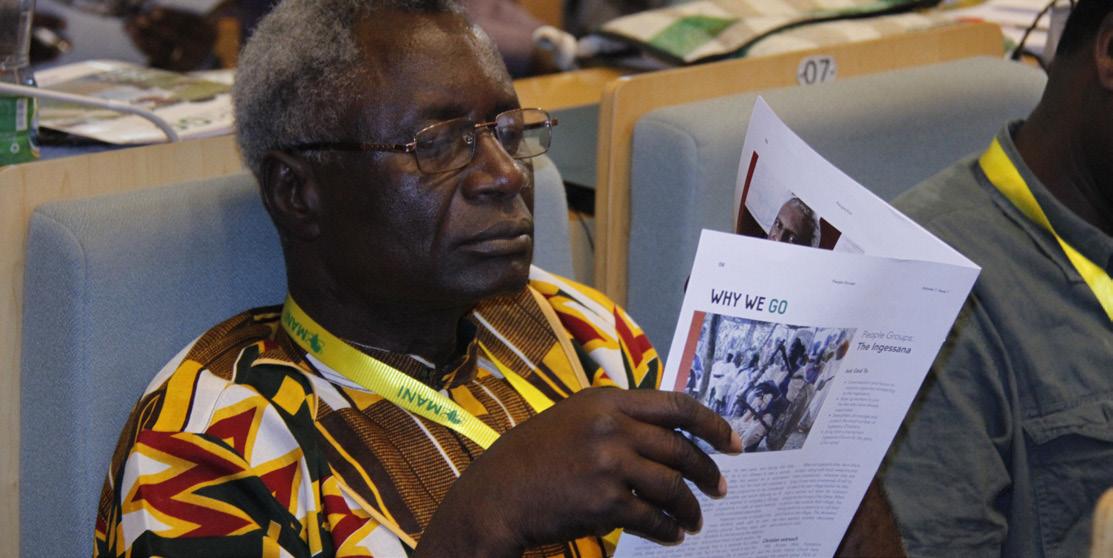
The Kairos course, a missions mobilisation tool, is generating zeal for participation in God’s redemptive purpose. It is designed to inspire, educate and challenge Christians, and motivate the Church to respond to God’s heart for the nations. Kairos leads to active and meaningful cross-cultural ministry and intentional outreach to those with no access to the good news of Jesus or a viable worshipping community. It is suited to churches, organisations and special interest groups, and facilitators can be trained to run the course in local congregations.
Kairos covers four thematic areas of mission: the biblical foundation; the historical perspective; the strategic aspect; and the cultural dimension. It uses a variety of learning aids, including group discussion, short lecture introductions, PowerPoint presentations, videos and specially-designed activities.
The Kairos journey can help you and your church to understand God’s eternal purpose and discover the missionary thread from Genesis to Revelation. Now in its fourth edition, Kairos is taught in more than 80 countries, and has been translated into 25 languages.
A team of trained facilitators of international reputation run the course. Participants will be inspired and challenged by God’s heartbeat for the lost, and equipped with the tools to play their part more effectively.
For further information about the Kairos course, contact the International New Nations Coordinator, Ebenezer Aryee at: ebenaaa@yahoo.co.uk or www.kairoscourse.org
In March 2014 the news of an outbreak of Ebola virus in northern Guinea surprised the world, because Ebola had never been identified in the region before. The number of people who contracted the disease quickly mounted, as it spread into neighbouring Liberia and Sierra Leone.
As the epidemic has drawn to a close in 2016, the WHO reports that 28,616 West Africans were infected with Ebola virus and more than 11,000 died. However, it is believed that the official statistics underestimate the number of people who fell victim to the disease.
The survivors’ ordeal did not end when they left the treatment centre. Today many people experience ongoing health problems: deafness, partial blindness, swollen joints, and post-traumatic stress and depression. Some lost their entire family, and have a sense of guilt about their survival, in addition to their grief. Many have not been able to resume their former activities or jobs for physical and emotional reasons. Children have been left without parents.
Although they no longer carry the Ebola virus, survivors have been stigmatised and rejected. When they returned to their homes, still weak from their lengthy sickness, they often found themselves locked out and their
belongings burned. Some have been sent away by their own spouses, out of fear that the virus is still hiding in their bodies. Others have been accused of killing their families or neighbours with witchcraft. When a flare-up occurs with no apparent source, fear of survivors is reignited. As a result, many have had to move into new communities, where they can hide their status as Ebola survivors.
Worst of all, Ebola survivors are not always welcome when they seek medical treatment. But ELWA Hospital in Monrovia, Liberia, is one facility that provides free health care for survivors, assuring them that they will not be turned away.
Recently a nurse told the story of a pregnant Ebola survivor who came to ELWA Hospital with malaria. She had begun intravenous treatment at another facility, but left when she had a bad reaction. Because of her survivor status, she had been forced to lie on the ground, and was neglected when she had the reaction. Since then she had not felt her baby move.
When the ELWA doctor heard of this woman’s concern about her unborn baby, he brought the portable ultrasound machine to her bedside. He showed her on the screen that her baby was moving, and pointed out the beating heart. Still, she was
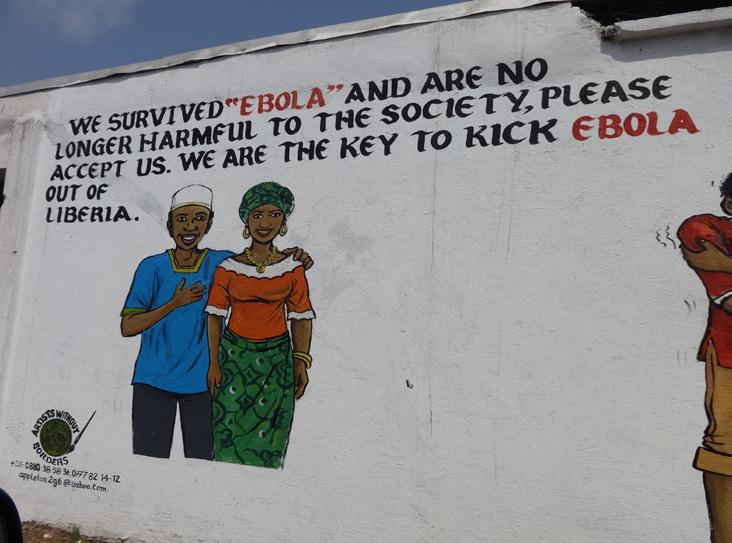
• Restore physical and emotional health to survivors of Ebola;
• Remove the stigma of Ebola and inspire his people to reach out to Ebola survivors in their communities;
• Comfort those who continue to grieve the loss of family members to the disease;
• Bless and equip pastors who are leading their churches to love and embrace Ebola survivors.
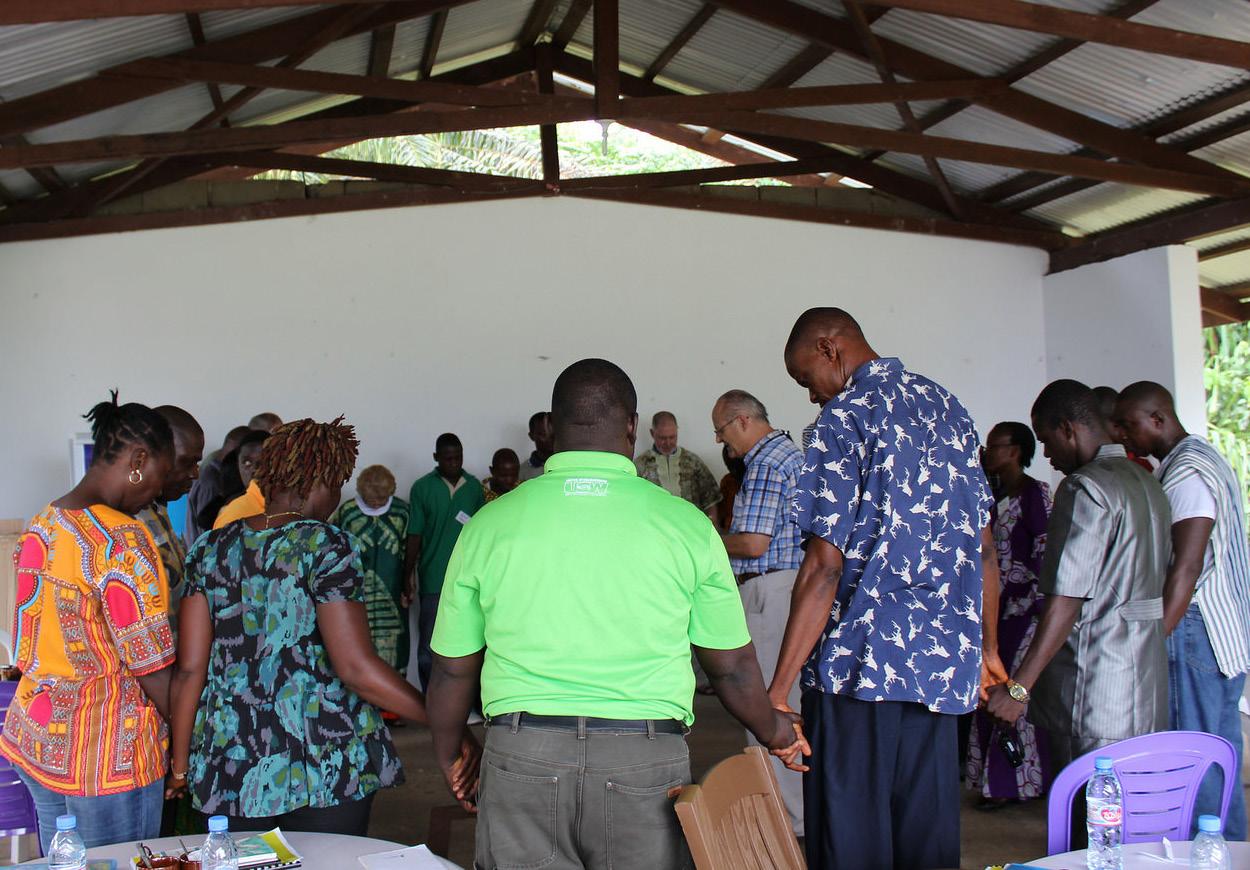
anxious because she could not feel any movement herself. So a nurse connected her to a foetal heart monitor and explained what signs of health could be seen on the printout. The woman smiled for the first time since she arrived, relieved and at peace.
Serving Ebola survivors is an opportunity for the Church to be like Jesus, to touch the untouchable and accept those who have been rejected. The Evangelical Church of Liberia has provided food and assistance to survivors’ families. Through a ministry of Trauma Healing Workshops launched by SIM and implemented through Liberian churches, many survivors have found healing for their grief by the Holy Spirit, hope in the love of their Heavenly Father, and acceptance in the body of Christ.